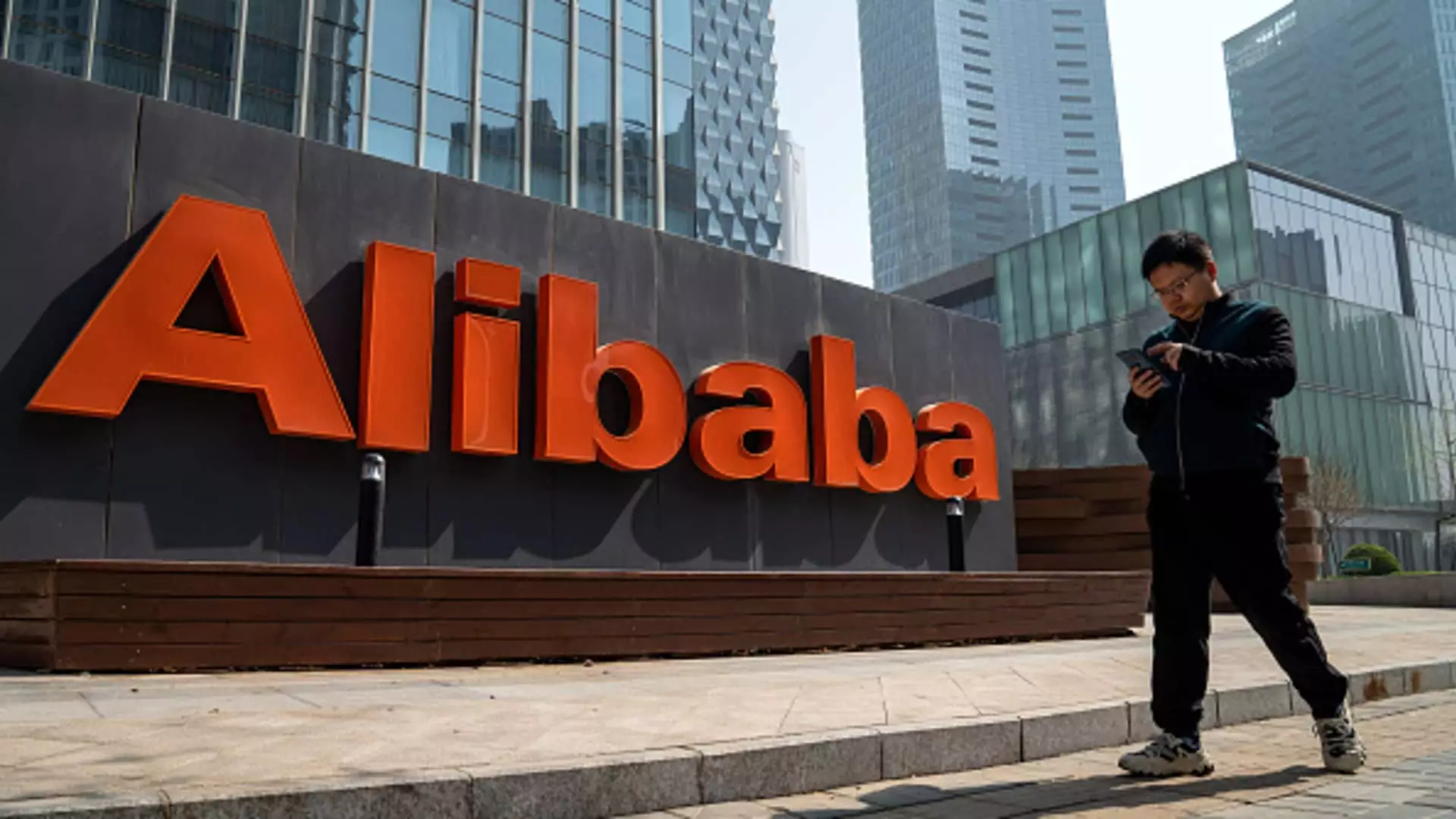In its latest financial disclosures, Alibaba revealed a complex picture of growth and struggle within the context of a slowing Chinese economy. For the quarter ending September 30, 2023, the e-commerce giant announced a staggering 58% year-on-year increase in net income, reaching 43.9 billion Chinese yuan (approximately $6.07 billion). This impressive profitability was largely driven by performance metrics from equity investments, contrasting with general sales figures that failed to meet analyst expectations. While net profits painted a rosy picture, the revenue figures told a different story; at 236.5 billion yuan, the revenue marked only a 5% increase year-on-year, falling short of the anticipated 238.9 billion yuan.
Despite the discrepancies in revenue performance, Alibaba’s stock price has shown resilience, appreciating nearly 17% year-to-date. Following the earnings announcement, shares increased by about 3% in premarket trading, reflecting investor optimism despite the underlying challenges presented by the current economic climate.
Consumer Spending and Market Dynamics
The results from Alibaba emerge at a critical juncture in the Chinese market, where consumer spending has been stagnant amid economic uncertainty. The dip in revenue illustrates this trend, as the sluggish retail environment affects not only Alibaba but also other key players in China’s e-commerce sector, such as JD.com, which similarly reported revenues below forecasts.
Investors are now focusing intently on the potential impacts of recent governmental stimulus initiatives. Notably, a substantial 1.4-trillion-yuan economic package was announced last week, designed to revitalize the ailing retail sector and stimulate consumer demand. The implications of these measures remain uncertain, although recent data suggests a glimmer of hope: October saw a surprisingly robust 4.8% year-on-year increase in retail sales, and the ever-popular Singles’ Day shopping holiday has also displayed signs of recovery.
Within Alibaba’s broader corporate structure, the performance of core business units such as Taobao and Tmall Group remains a focal point for analysts and investors. The group experienced a 1% uptick in revenue to reach 98.99 billion yuan this quarter, suggesting a degree of stability within Alibaba’s primary operating segments amid external pressures.
Moreover, Alibaba’s overseas businesses, including Lazada and AliExpress, demonstrated strong performance as well, posting a remarkable 29% growth in sales to reach 31.67 billion yuan. This international success showcases Alibaba’s efforts to diversify its revenue streams and reduce reliance on the volatile domestic market.
The Cloud Intelligence Group, another essential segment of Alibaba’s operations, recorded a 7% year-on-year sales growth, totaling 27.65 billion yuan for the quarter. Although a slight increase compared to earlier figures, this growth is perceived positively, particularly in light of the company’s investments in artificial intelligence (AI). CEO Eddie Wu emphasized the remarkable double-digit revenue growth in public cloud products and triple-digit growth in AI-related offerings. This strong performance positions Alibaba as a competitive force in the booming AI sector, amidst heightened competition from domestic rivals like Baidu and multinational players such as Microsoft and OpenAI.
Furthermore, Alibaba is taking significant strides in expanding its AI capabilities, having launched its own ChatGPT-style service, Tongyi Qianwen, and an AI-enhanced search tool aimed at small businesses in markets outside of Asia. These developments underscore Alibaba’s commitment to evolving alongside technological advancements while navigating the regulatory landscape shaped by Beijing’s recent industry crackdowns.
Facing daunting challenges in a tepid economic environment, Alibaba’s latest earnings reveal both triumphs and trials. While the staggering profit growth suggests resilience, slipping revenues reflect significant market difficulties. As the company continues to adapt and innovate—particularly in artificial intelligence and cloud computing—it will be vital for Alibaba to effectively leverage recent government initiatives designed to stimulate the economy. The forthcoming months will offer critical insights into whether these strategies will resonate with consumers and translate into sustained growth for one of the world’s leading e-commerce giants. The trajectory of Alibaba will remain closely tethered not only to its internal strategies but also to the broader economic landscape in China.

